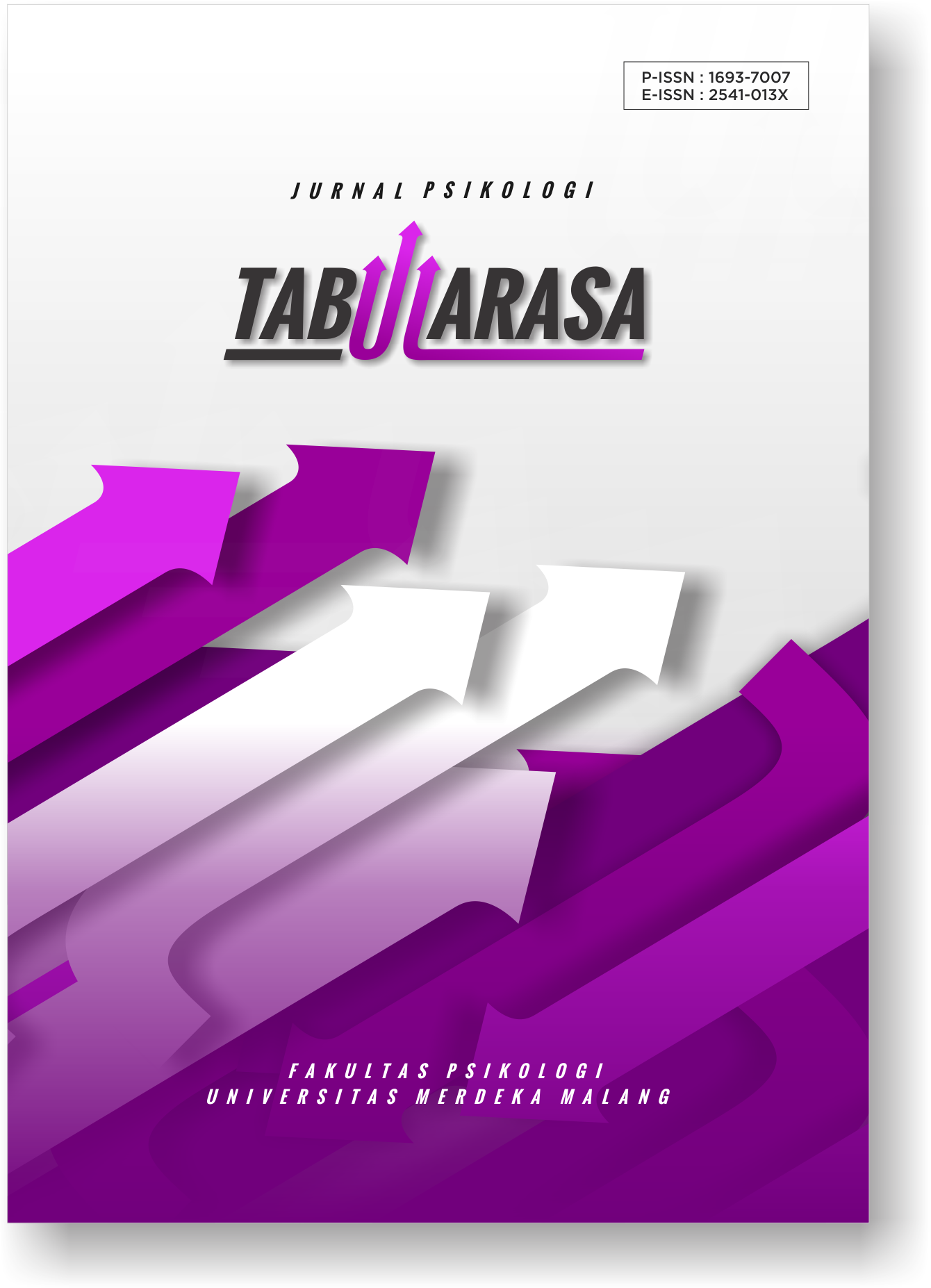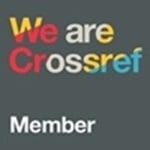Application of group counseling based on cognitive behavioral therapy to students with a tendency to online game addiction in Malang City
DOI:
https://doi.org/10.26905/jpt.v19i2.13814Abstract
ABSTRACT
The prevalence of students with a tendency to online game addiction is increasing, but studies on effective intervention to overcome the problem are still very limited. In this article, the influence of group counseling based on cognitive behavioral therapy on the tendency of online game addiction in students is discussed. The method in this study uses a quasi experiment, with a one group pre-test post-test design. The sampling technique used was purposive sampling. The sample in this study is ten students in Malang City. The reliability test of the online game addiction tendency instrument used alpha cronbach with a coefficient value of 0.9. The assumption test uses normality and homogeneity tests. Test the hypothesis using a paired sample t-test using SPSS 20 for Windows. The results showed that there was a difference between the pre-test and post-test scores with a value of p = 0.00, so it can be concluded that there was a significant change in the level of the subject’s online game addiction tendency between before and after being treated. The mean pre-test score was higher than the mean post-test score, so it can be concluded that the students showed a decrease in the tendency of online game addiction after being given psychological intervention in the form of group counseling based on cognitive behavioral therapy.
ABSTRACT
Prevalensi siswa dengan kecenderungan adiksi game online semakin meningkat, namun kajian tentang tindakan penanganan yang efektif untuk mengatasi masalah tersebut masih sangat terbatas. Dalam artikel ini dibahas pengaruh konseling kelompok berbasis terapi kognitif perilaku terhadap kecenderungan adiksi game online pada pelajar. Metode penelitian ini menggunakan rancangan kuasi-eksperimental one group pre-test posttest. Teknik pengambilan sampel yang digunakan adalah purposive sampling dengan tujuan memilih partisipan yang memiliki karakteristik spesifik yang relevan dengan tujuan penelitian. Sampel pada penelitian ini adalah sepuluh orang pelajar di Kota Malang. Uji reliabilitas instrumen kecenderungan adiksi game online menggunakan alpha cronbach dengan nilai koefisien sebesar 0,9.. Uji asumsi menggunakan uji normalitas dan homogenitas. Uji hipotesis dengan menggunakan paired sample t-test dengan bantuan SPSS 20 for Windows. Hasilnya diketahui terdapat perbedaan antara skor pre-test dan post-test dengan nilai p = 0,00 maka dapat disimpulkan bahwa terdapat perubahan yang signifikan pada tingkat kecenderungan adiksi game online subyek antara sebelum diberi perlakuan dan setelah diberikan perlakuan. Mean skor pre-test lebih tinggi dibandingkan mean skor post-test maka dapat disimpulkan bahwa para pelajar menunjukkan penurunan kecenderungan adiksi game online setelah diberikan intervensi psikologis berupa konseling kelompok berbasis terapi kognitif perilaku
Downloads
References
Albery, I. P., & Munafo, M. (2008). Key Concepts in Health Psychology. California : SAGE Publications.
American Psychiatric Association. (2013). Diagnostic and Statistical Manual of Mental Disorder Edition (DSM-V). Washington : American Psychiatric Publishing. https://doi.org/10.1176/appi.books.9780890425596
Beck, J. S. (2021). Cognitive Behavior Therapy: Basics and Beyond. 3rd Ed. New York: The Guilford Press.
Griffith, M. D. (2010). Does video game addiction really exist?. Education today. 60 (2), 28-31.
Huda, Z. (2021). Hubungan Kontrol Diri dengan Kecanduan Game Online pada Remaja SMA X. Prosiding Konstelasi Ilmiah Mahasiswa Unissula (KIMU) Klaster Humanoira, 1(1).
Kaplan, H. I., Sadock, B. J., & Grebb, J. A. (2010). Sinopsis Psikiatri : Ilmu Pengetahuan Perilaku Psikiatri Klinis. Edisi 2. Jakarta: Bina Rupa Aksara.
King, D. L. & Delfabbro, P. H. (2019). Internet Gaming Disorder Theory, Assessment, Treatment, and Prevention. Cambridge: Academic Press.
Lin, Y.W.C. (2018). Game Addiction is Included in Mental Illness and Medical Care is A Challenge: Textual and Discourse Analysis. Vol. 1. Issue 2 : 26-30. DOI:10.26502/fjhs004
Liese, B. S., & Beck, A. T. (2022). Cognitive Behavioral Therapy of Addictive Disorder. New York: The Guilford Press.
Narullita, D., & Yuniati, E. (2021). The Effect of Cognitive Behaviour Therapy (CBT) and Acceptance Commitment Therapy (ACT) to Reduce of Game online Addiction in Adolescents. Available at SSRN 3808409.
Pamungkas, P. D., Mardhiyah, S. A., & Puspasari, M. (2019).Hubungan Antara Konsep Diri Dengan Kecanduan Game online Pada Pemain Game Mmorpg. Jurnal Insight, 15(1), 60-70. DOI:10.32528/ins.v15i1.1643
Salimah, N., & Zukdi, I. (2020). Dampak Kecanduan Game Online Pada Peserta Didik di SMP Negeri 12 Padang. Jurnal Al-Taujih, 6(2), 128-138. DOI: 10.15548/atj.v6i2.2127
Siregar, E. Y. (2013). Penerapan cognitive behavior therapy (cbt) terhadap pengurangan durasi bermain games pada individu yang mengalami games addiction. Jurnal Psikologi, 9(1), 17-24
Young, K. S. (2007). Cognitive behavior therapy with Internet addicts: treatment outcomes and implications. Cyberpsychology & behavior, 10(5), 671-679.
Zees, R. F., Ariani, G. A. P. P., Usman, L., & Djamalu, I. (2021). Effectiveness of Cognitive behavior therapy (CBT) Terhadap Ketergantungan Gadget pada Remaja Di Politeknik Kesehatan Gorontalo. In PROSIDING Seminar Nasional Tahun 2020 ISBN: 978-623-93457-1-6 (pp. 131-138).
Zees, R. F., Ariani, G. A. P. P., Usman, L., & Djamalu, I. (2021). Effectiveness of Cognitive behavior therapy (CBT) Terhadap Ketergantungan Gadget pada Remaja Di Politeknik Kesehatan Gorontalo. In PROSIDING Seminar Nasional Tahun 2020 ISBN: 978623-93457-1-6 (pp. 131-138).
Downloads
Published
How to Cite
Issue
Section
License

This work is licensed under a Creative Commons Attribution-ShareAlike 4.0 International License.




